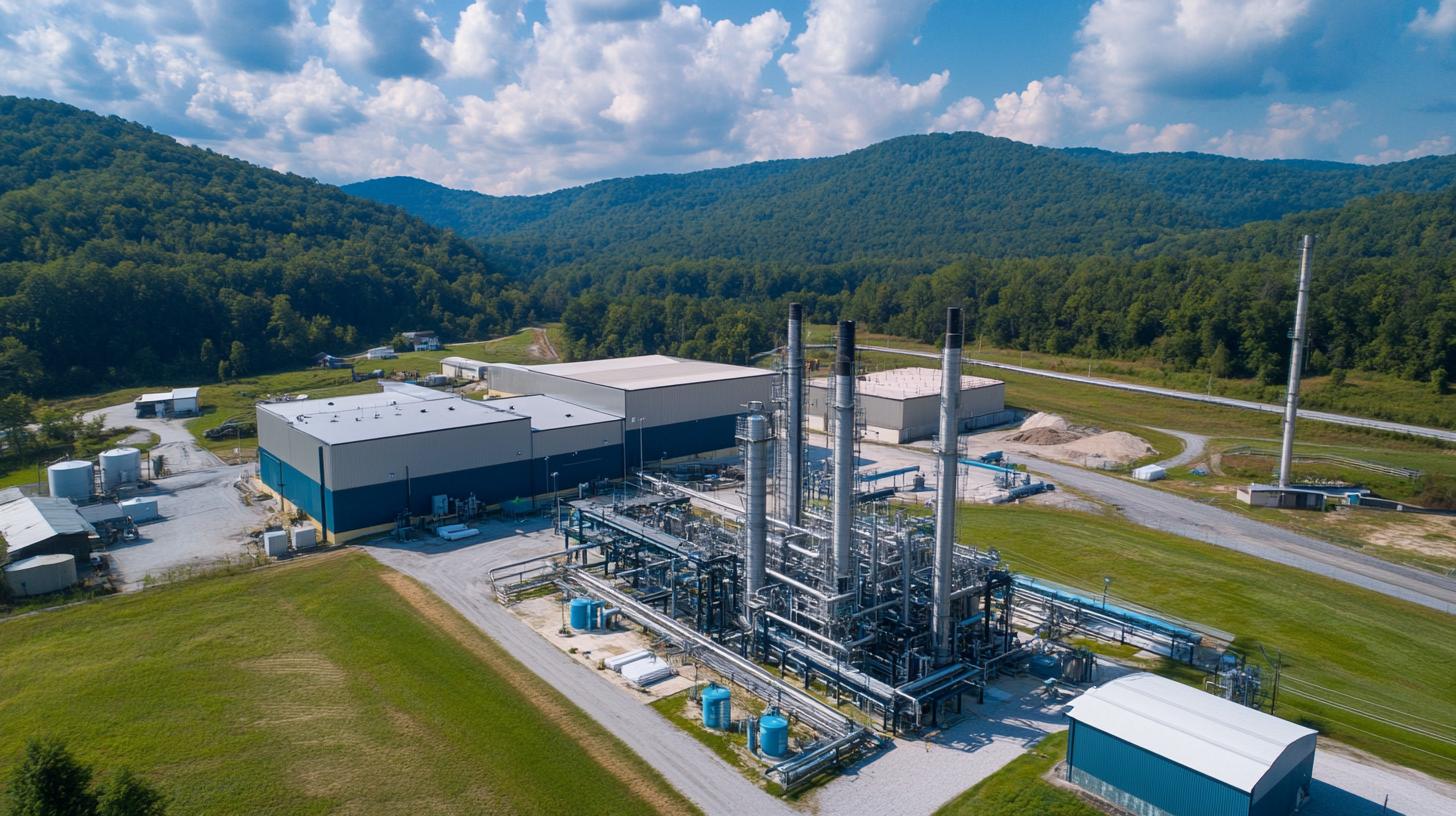In a groundbreaking initiative, TNT Biofuels is set to transform the energy landscape of Mercer and McDowell counties, West Virginia, with plans to establish 25 cutting-edge hydrogen-producing coal plants. These plants are poised to utilize a unique characteristic of local coal, which can be heated beyond 1,200 degrees Fahrenheit, to efficiently produce hydrogen and subsequently generate electricity for sale.
This ambitious project is expected to consume a staggering 1,400 tons of coal daily, resulting in the generation of 30 to 35 megawatts of power. The endeavor is currently in the capital-raising phase, with projected investments in the region soaring to $10 billion over the next decade.
Strategically located near major highways, these hydrogen plants will commence preliminary construction work in spring, with the aim of completing major developments by late 2025. Once operational, the initiative will not only revolutionize energy production but also stimulate local employment, providing jobs for approximately 3,000 individuals with entry-level wages starting at $60,000.
To prepare a skilled workforce, TNT Biofuels is teaming up with Bluefield State University to offer scholarships in engineering and technology, reinforcing the local community’s role in this cutting-edge venture.
Additionally, positive economic incentives are drawing interest, as the project is situated in an opportunity zone. This designation provides substantial tax benefits to investors re-investing profits, promoting economic development in rural areas.
With the promise of sustainable energy driving the investment world, TNT Biofuels is not just meeting current demands but is also laying the groundwork for a green future, aiming for a plant lifespan of up to 75 years.
New Hydrogen Age: Unveiling Untold Impacts of Coal Transformation in West Virginia
In the quiet corners of Mercer and McDowell counties, where coal mines once symbolized economic lifeblood, the potential of a new energy revolution is brewing. As reported, TNT Biofuels is set to establish hydrogen-producing coal plants in this region. While the project promises significant shifts in energy production, several untold impacts and considerations remain, particularly concerning the local communities and the broader economic landscape.
Economic Ripple Effects and Job Opportunities
A key feature of the TNT Biofuels project is its potential to create approximately 3,000 new jobs. For a region historically reliant on the coal industry—one that has faced economic challenges with the decline of traditional coal mining—this signifies a much-needed economic revival. Yet, what does this really mean for the townsfolk?
While these jobs promise generous entry-level wages starting at $60,000, there’s an underlying question about the nature of these roles. Are they primarily technical, requiring specialized training, or do they also include positions accessible to individuals with diverse skill sets? It’s noteworthy that TNT Biofuels has partnered with Bluefield State University to provide scholarships in engineering and technology. This partnership might ensure a tailored workforce meets the project’s specific needs, but it also begs the question: will the current population see immediate job access, or will the benefits primarily reach future generations?
Environmental and Health Impacts
TNT Biofuels is embracing an innovative method by utilizing West Virginia’s unique coal properties to produce hydrogen and subsequently electricity. However, the daily consumption of 1,400 tons of coal could raise environmental concerns. Does this commitment to renewable hydrogen sufficiently offset the environmental cost of coal usage?
Communities are rightfully concerned about air and water quality. Any fossil fuel facility brings with it potential pollutants, raising questions about long-term health implications and environmental sustainability. While the company aims to create a greener future, the juxtaposition of using coal—even in an innovative way—raises a fundamental controversy. How sustainably can coal, even in this form, contribute to the clean energy transition?
Sociocultural Dynamics
The influx of such a massive project into a rural setting often shifts local dynamics. As new people might move in for work opportunities, local culture and community structures could experience pressure. What will this mean for traditional Appalachian lifestyles, and how could it impact community cohesion?
The strategic inclusion of opportunity zones in the economic structure provides tax benefits, heralding a potential boom in local investments and small businesses. While these incentives are beneficial, they also hold the risk of displacing longstanding community members who cannot keep up with rising costs or changing economic conditions.
Global Implications and Opportunities
The transformation of Mercer and McDowell counties into pivotal nodes of hydrogen energy underscores a significant shift in global energy paradigms. West Virginia could become a testament to how coal-rich regions can pivot towards future-thinking strategies. This experiment is not just local—it has international eyes watching closely. If successful, could this model be replicable in other coal-dependent regions worldwide?
For more on hydrogen energy and economic revitalization through technology, visit these resources: U.S. Department of Energy and World Economic Forum.
In essence, while TNT Biofuels’ project is indeed a milestone in sustainable energy, its socioeconomic, environmental, and cultural ramifications create a complex tapestry of potential outcomes. The world watches with both anticipation and skepticism—eager to see how one community’s journey might illuminate paths for others.


















